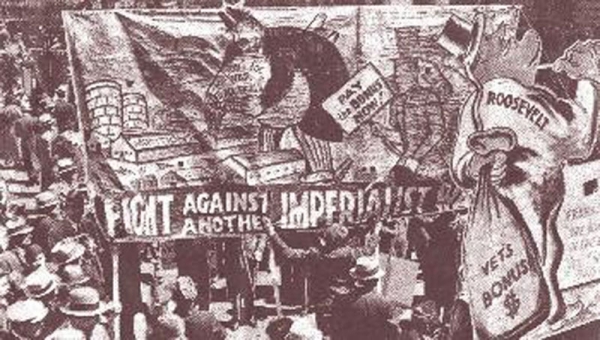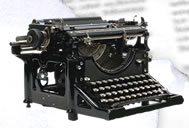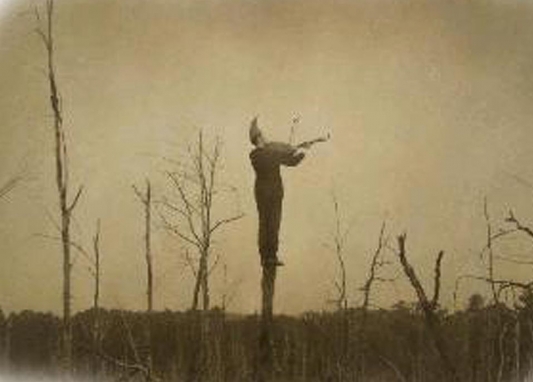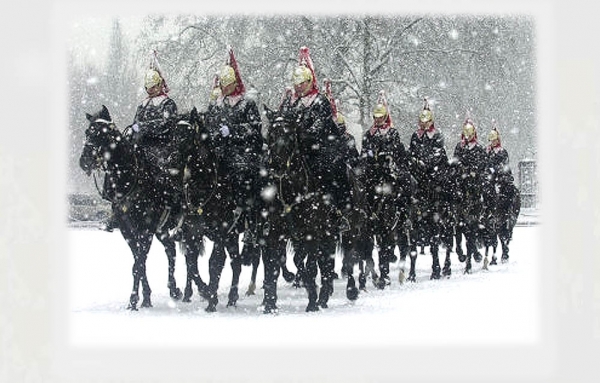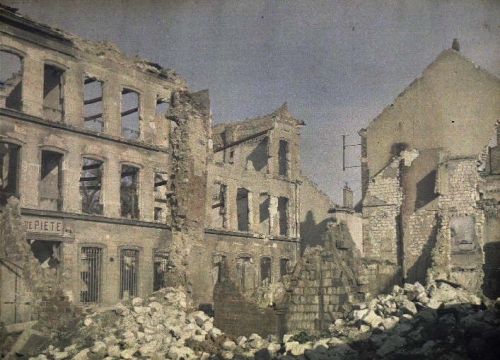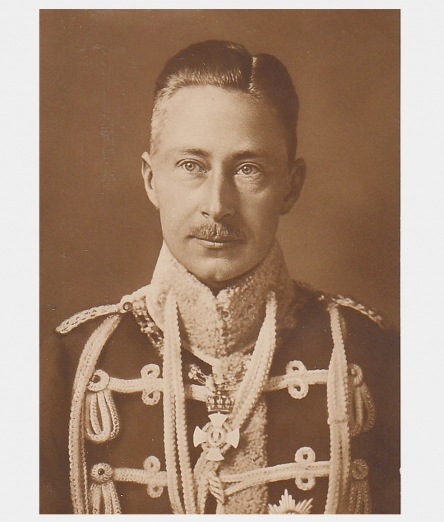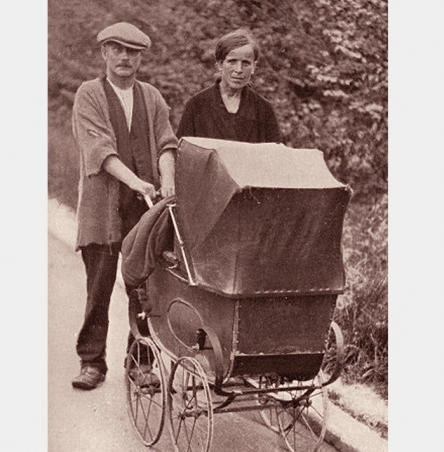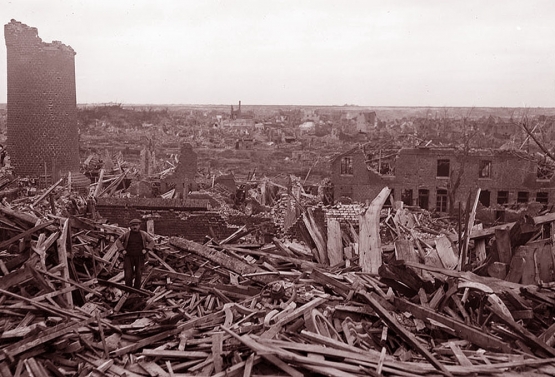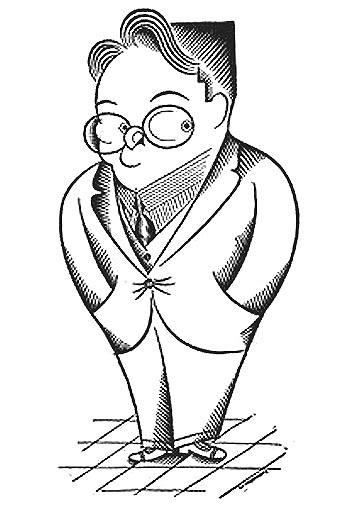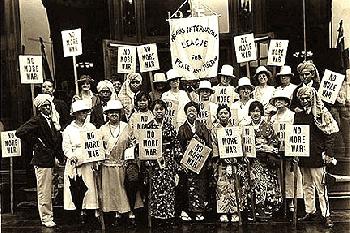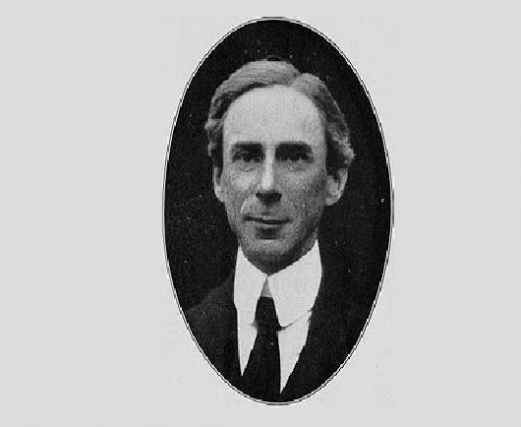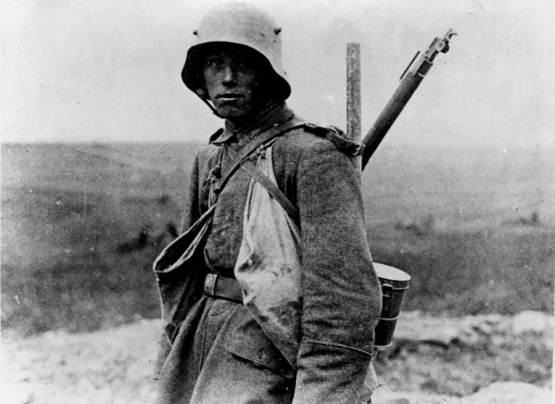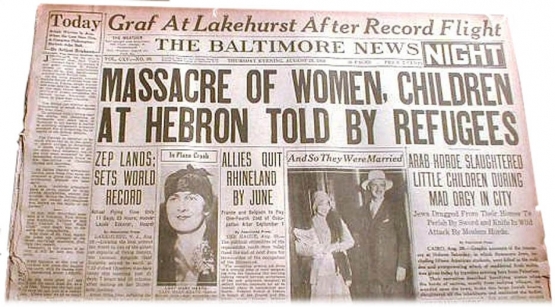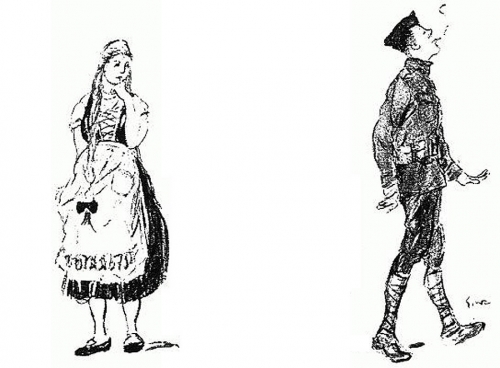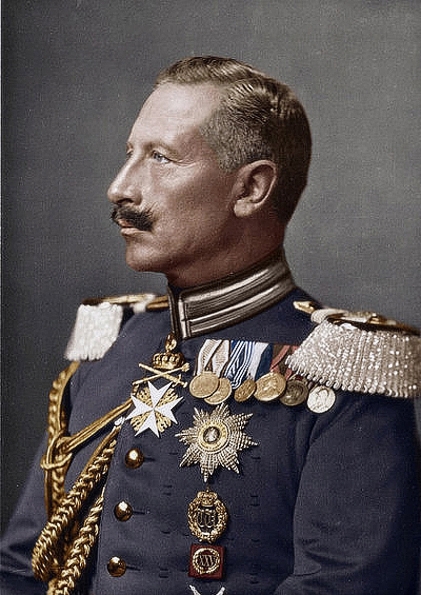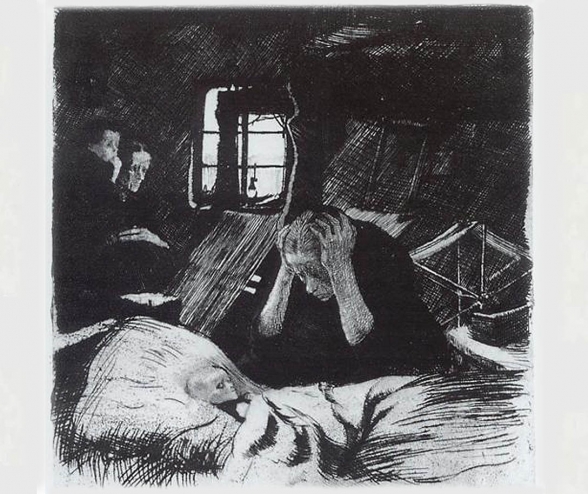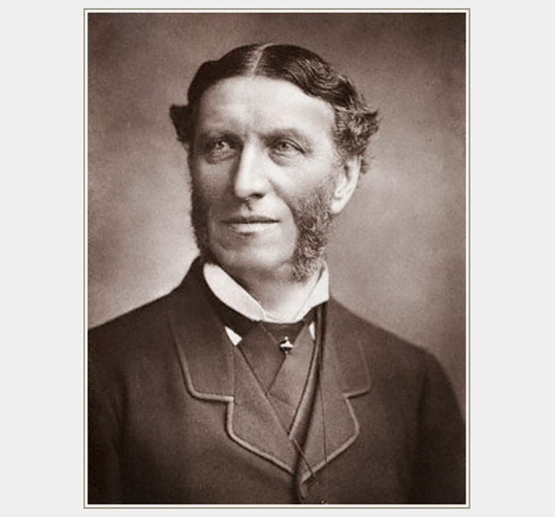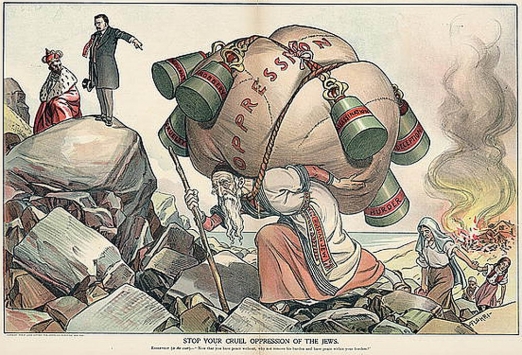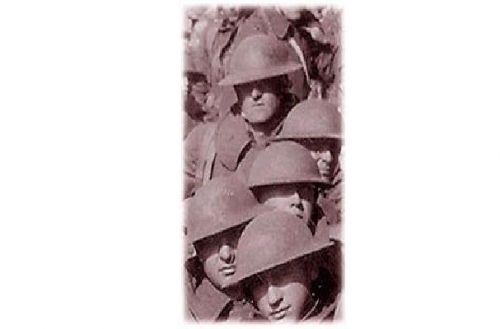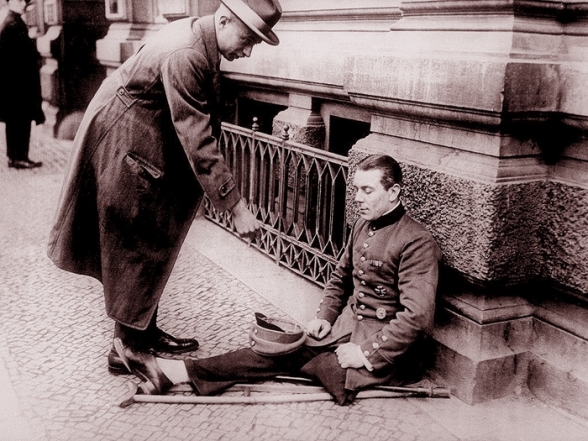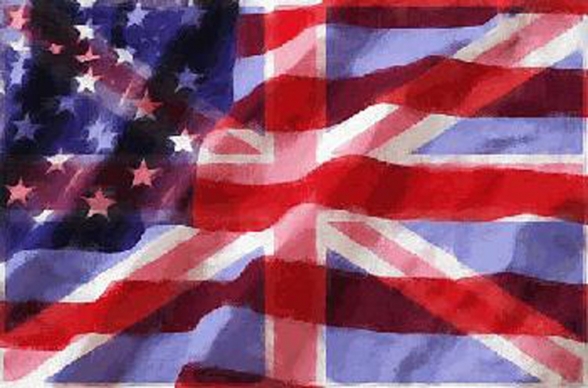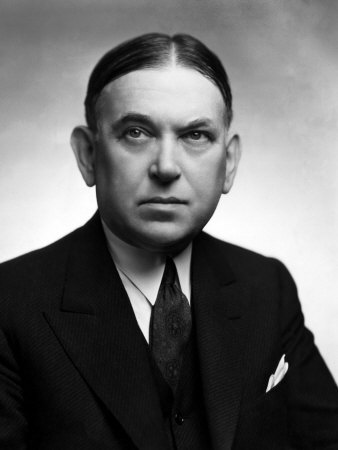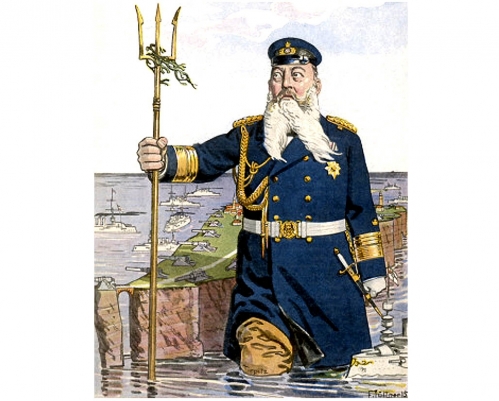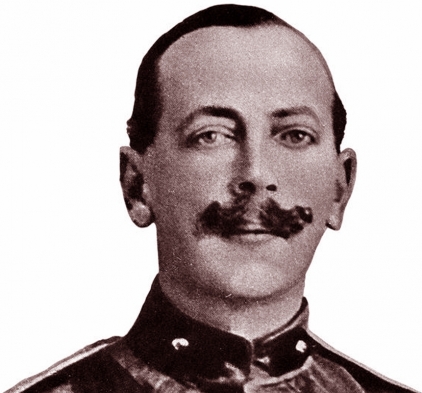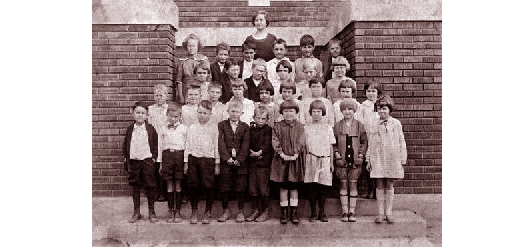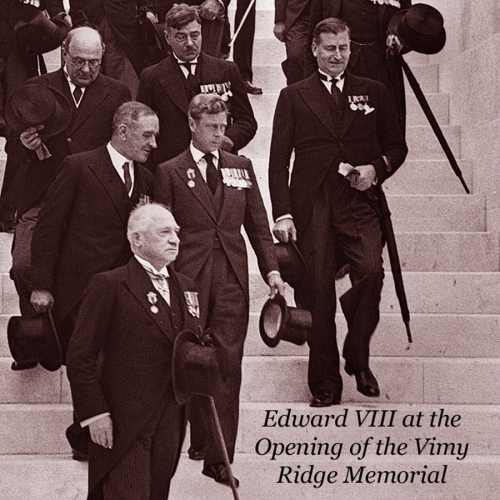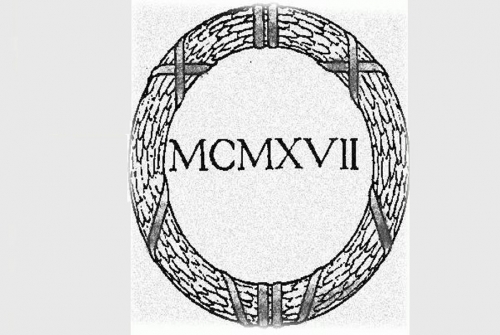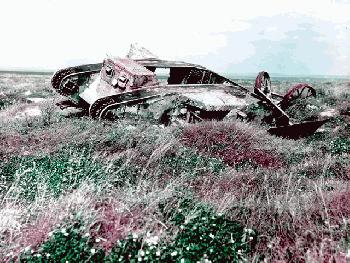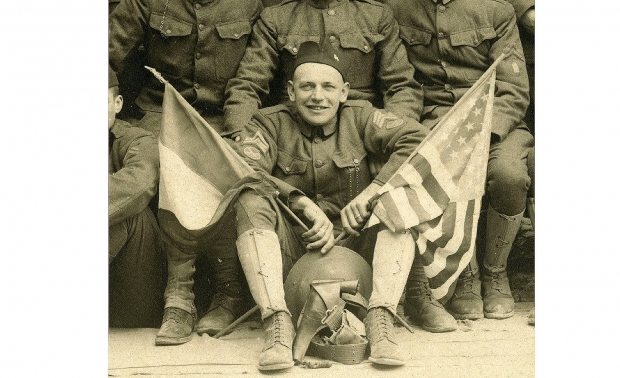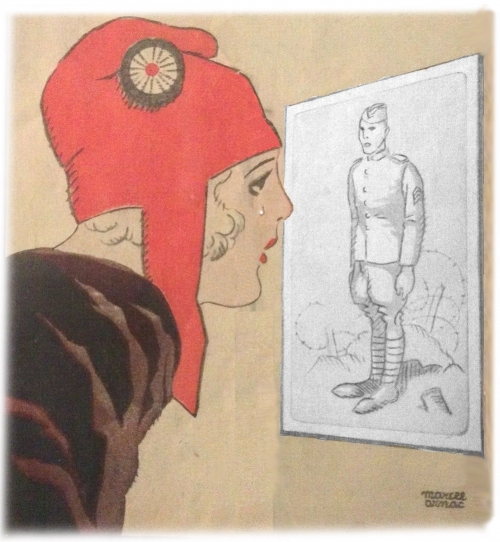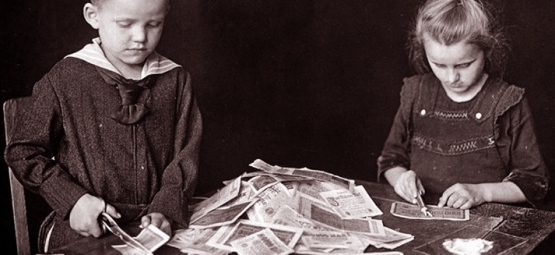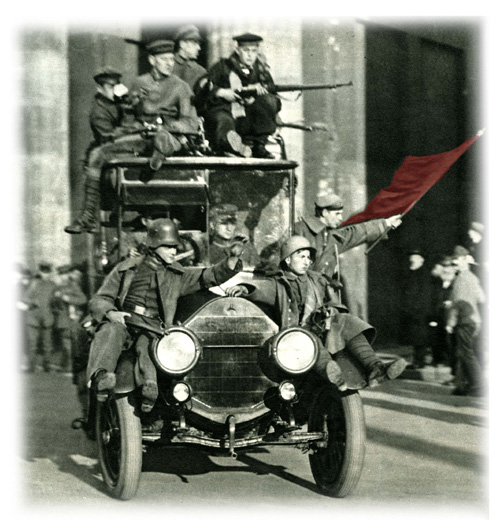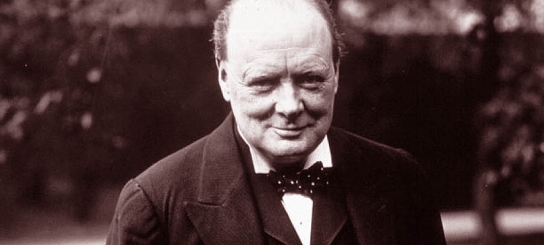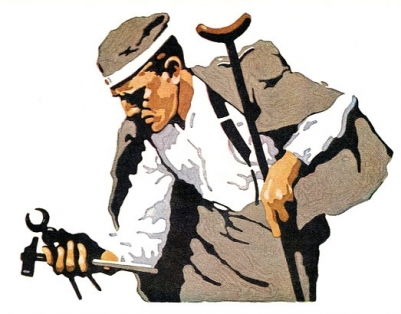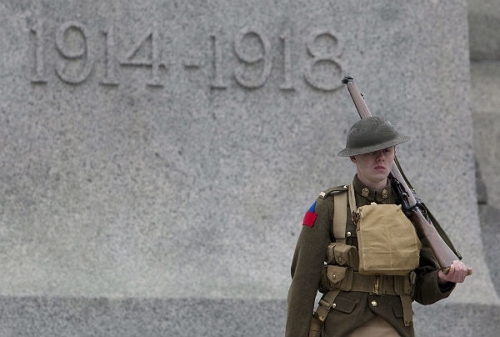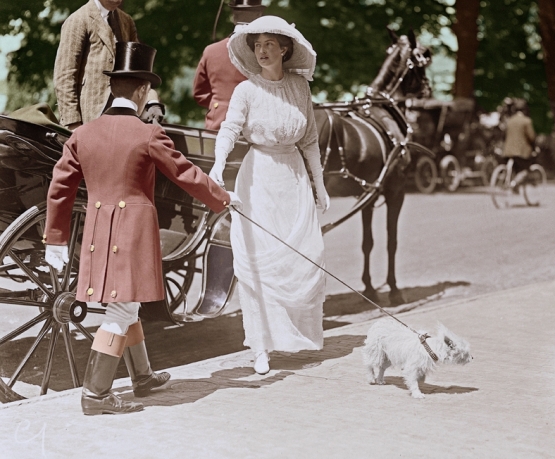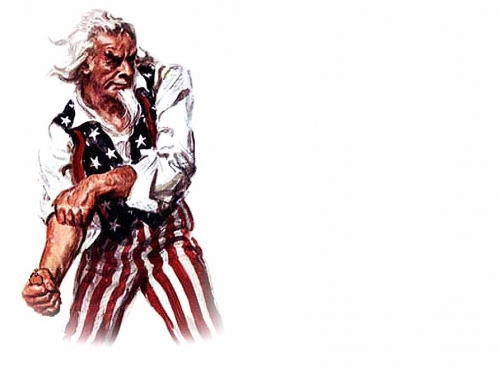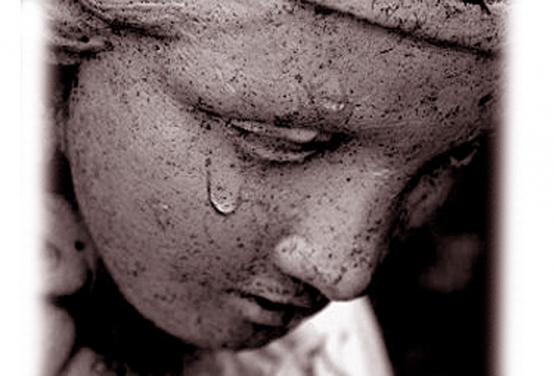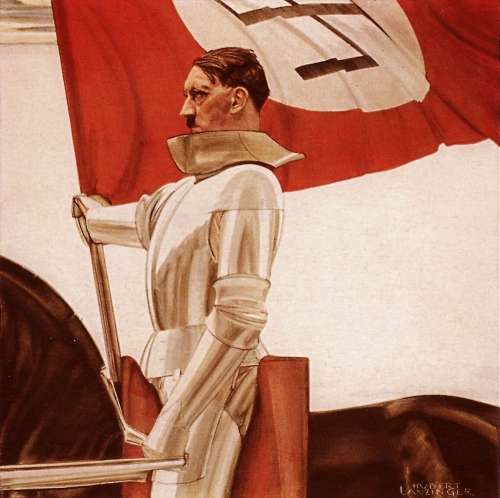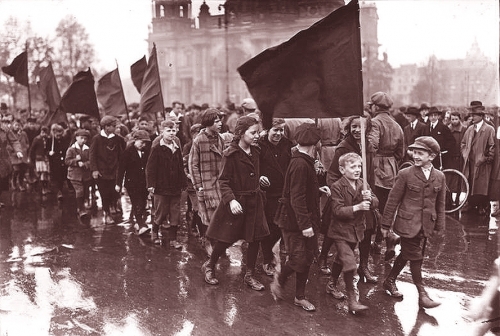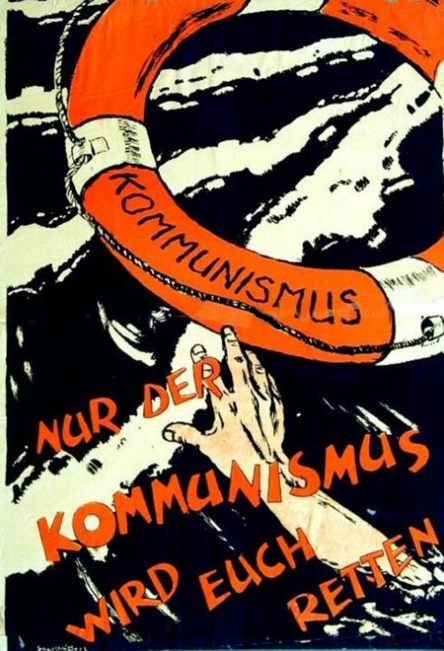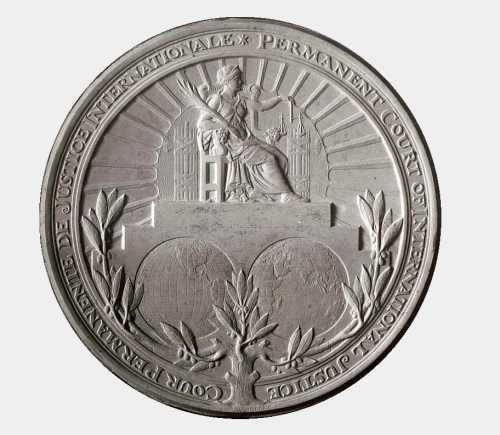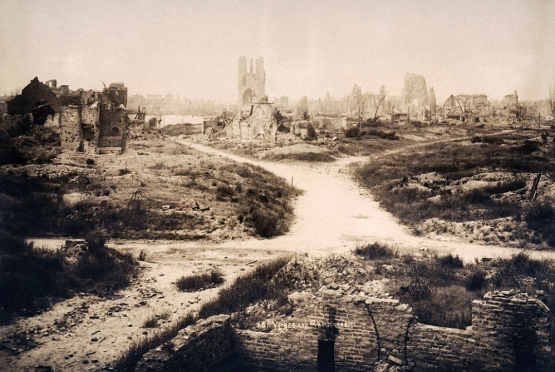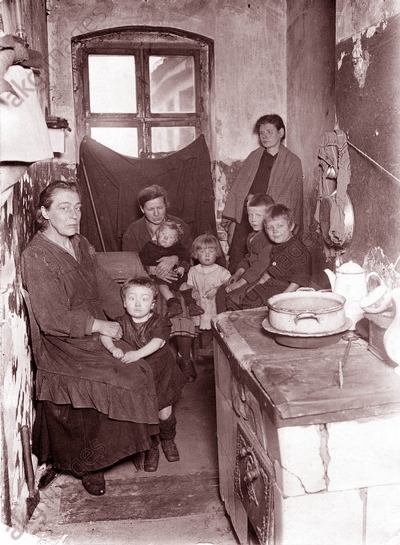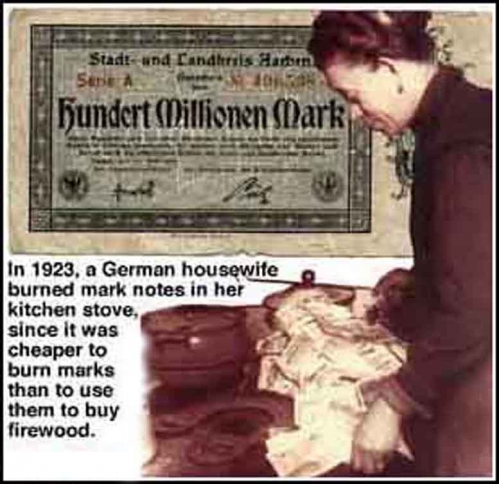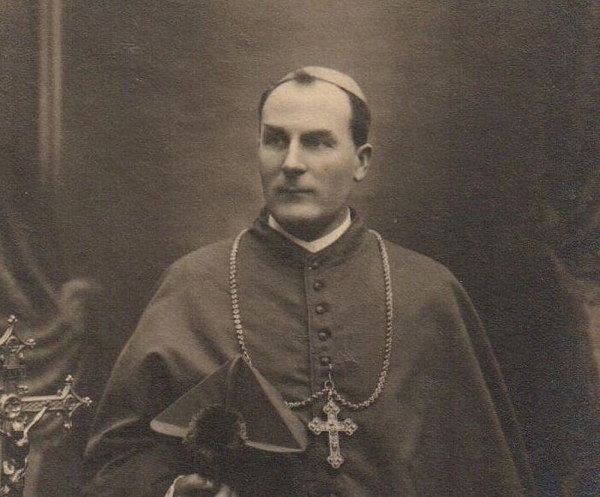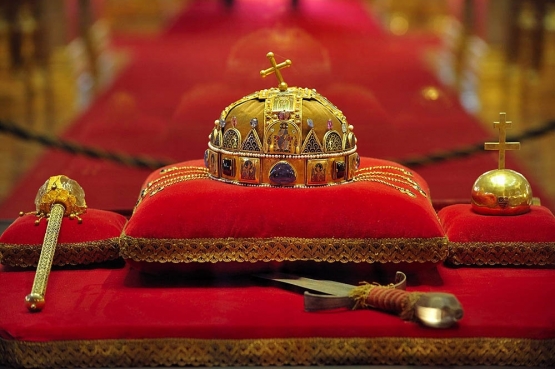In 1920 there were many articles celebrating the three-hundredth anniversary of the Puritan's arrival on Cape Cod. This one writer decried the lack of enthusiasm that marked the modern age following the end of the Great War - a world that stood in contrast to the Pilgrim spirit. Religious faith, patriotism, and the belief in human progress had all been called into question by the mass carnage experienced during the war. Shell shocked and traumatized, the world seemed different: the old order had collapsed, replaced by an age of machines. The author of this column, Preston Slosson, was one of the observant souls to realize that the legacy of the First World War was disillusionment and cynicism.
"Our stock of idealism has temporarily run low and a mood of cynicism has replaced the devoted enthusiasm of 1918..."
Click here to read a 1916 article about life on the German home front.
"To-day was a great day in London. The Guards' Division was inspected by the King at Buckingham Palace and had a triumphant march to welcome them home...East End and West End rubbed shoulders to-day and showed the same respect for each other that not so long ago they had shown in the trenches."
Click here to read an article about the German veterans of W.W. I.
While debating the 1922 issue of benefits to be paid to the American W.W. I veterans, this record of salary and the post-war benefits paid by
the other combatant nations was distributed to members of Congress.
H.L. Mencken and George Jean Nathan, editors of
The Smart Set, surmised that as the Europeans bury their many dead among the damp, depressing ruins of 1920s Europe, America is neither admired or liked very much:
"...the English owe us money, the Germans smart under their defeat, the French lament that they are no longer able to rob and debauch our infantry."
At the thirty-fifth annual Church Congress of the Protestant Episcopal Church (1919), clergy members seemed to agree that Christian leaders were needlessly
complicit
concerning their support for the First World War and were guilty of substituting Christian principles for patriotism:
"Christianity has betrayed itself body and soul".
If you would like to read about the spirit of disillusion that permeated post-war literature, click here.
In the attached magazine interview, Kaiser Wilhelm's son and fellow exile, Crown Prince Wilhelm III (1882 - 1951, a.k.a. "The Butcher of Verdun"), catalogs his many discomforts as a "refugee" in Holland. At this point in his life, the former heir apparent was dictating his memoir (
click here to read the book review) and following closely the goings-on at Versailles.
Click here to read an article about the German veterans of W.W. I.
A 1921 column that clearly pointed out all the hardships created for Germany as a result of
the Versailles Treaty.
The framers of that agreement could never have envisioned that the post-war landscape they designed for Germany would be pock-marked with such a myriad of frustrations - such as the border skirmishes between Germany and Poland, inflation, famine, the Salzburg Plebiscite and such harsh reparation payments that, when combined with all the other afflictions, simply served to create the kind of Germany that made Hitler's rise a reality.
Another article about the despondency in 1920s Germany can be read here...
In the later years of the First World War, the American journalist Alexander Woollcott (1887 - 1943) served as a writer for the Doughboy newspaper
The Stars & Stripes. In this roll he was able to travel far afield all over the American sectors of the front where he saw a great deal of the war: flattened villages, ravaged farmland, factories reduced to ruble. In the attached article from 1920, Woollcott reported that the war-torn provinces of France looked much the same, even two years after the Armistice. He was surprised at the glacial speed with which France was making the urgent repairs, and in this article he presented a sort-of Doughboy's-eye-view of post-war France.
More on this topic can be read here
During the closing months of the American presence in France, one element can be found in the majority of the letters written to loved ones at home:
"The French aren't treating us as nice".
In the war's aftermath, writer Alexander Woollcott (1887 - 1943) attempted to explain the situation to his readers; what follows were his observations.
"Not pacifists, but soldiers, have signed what several editors term one of the most striking and remarkable appeals for peace that have come to their tables."
Veterans of the 1914-1918 slaughter called for their respective governments to "oppose territorial aggrandizement" and demanded "that an international court be established to outlaw war"; following the establishment of said court, the immediate effort "to disarm and disband sea and air forces and destroy the implements of warfare" should begin. The American Legion Commander-in-Chief, Alvin Owsley (1888 - 1967), was among the signators.
Click here to read an article about the German veterans of W.W. I.
The British philosopher Bertrand Russell (1872 - 1970; Nobel Prize for Literature, 1950) used to get mighty hot under the collar when the topic of American society came up and this column is just one example. During his 1922 American speaking tour Russell rambled-on about how prone Americans were to confuse the truth with commercial messages; believing that altruism was seldom a motivating factor behind a single American undertaking. He will have none of the thinking that America's main concern for jumping into the meat grinder of 1914-1918 was entirely inspired by "wounded France" and "poor little Belgium" but was rather an exercise in American self-interest.
Read the thoughts of one W.W. I veteran who regrets having gone to war...
Georges Clemenceau (1841 - 1929) served as one of France's wartime Premieres (1917-1920). The following is an excerpt from his "letter to the American people" imploring them to share in his outrage concerning Germany's open defiance to the Versailles Treaty. Clemenceau would die seven years later, fully convinced that another devastating war with Germany was just around the corner.
Click here to read more articles about the German violations of the Versailles Treaty.
It was estimated that there were as many as two million empty seats around the collective family dinner tables in Post World War One Britain. Such an absence of young men could not help but lead to a new social arrangement:
"England is the great human laboratory of our generation - England with her surplus of two million women, her restless, well-equipped, unsatisfied women".
Too many European women were unable to find husbands and moved to America.
"I predict increasing ferment and unrest throughout all Islam; a continued awakening to self-consciousness; an increasing dislike for Western domination."
So wrote Lothrop Stoddard (1883 - 1950), an author who was very much a man of his time and tended to gaze outside the borders of Western Civilization with much the same vision as his contemporary Rudyard Kipling, seeing the majority of the world's inhabitants as "the white man's burden". Yet, for all his concern on the matter of Anglo-Saxon hegemony, he seemed to recognize the growing discontent in Islam, even if he was some sixty years early.
A few cartoons by the illustrator George Wright (1872 - 1951) depicting the American Third Army during it's 1919 occupation of Germany.
Click here to read about the Stars & Stripes cartoonist, "Wally"...
A brief article published some six months after the Armistice in which the editors collected various opinion pieces from assorted German newspapers that clearly stated the deep hatred many Germans felt for their former king. Also mentioned was the possibility that the dethroned Kaiser could possibly stand trial before the "court of Nations".
"The rotten branch on the Hohenzollern tree must be broken off, so that the tree may once more bloom and flourish. William II is superficial, frivolous, vain, and and autocratic; a lover of pomp; proud of his money, void of seriousness; a petty worshiper of his own petty self; without one trait of greatness, a poseur, an actor, and worst of all for a ruler: a coward."
Click here to read what the Kaiser thought of Adolf Hitler.
Attached is a sad advertisement that ran on the pages of THE NATION for a number of years following the end of the war. Posted by a German charity, the ad pictures -what we can assume to be- a starving German child from one of the more impoverished regions of Saxony or Thuringia. All told, the photo and the accompanying text clearly illustrate the economic hardships that plagued post-World War I Germany.
Click here to read an article about the German veterans of W.W. I.
The anonymous old wag who penned this opinion column came to understand Gray's words - four years after the war he looked around and found that the world speeding by his window seemed untouched by the heavy-handed Victorians. For this writer, the Victorian poet and writer Matthew Arnold (1822 - 1888) represented the spirit of that age and it all seemed to come crashing down in 1922:
"Granting that the son of Arnold of Rugby was more troubled over the decay of Christian dogma than we are, it should be remembered that the decay symbolized for him a fact of equal gravity to ourselves -- the loss of a rational universe in which to be at home. But he never doubted how a new world was to be built -- by justice and by reason, not by claptrap and myth."
"One of the most sinister results of the war has been a new wave of anti-Semitism in Europe. Recent dispatches from Berlin describe street demonstrations against Jews and speak of "a veritable pogrom atmosphere" in Munich and Budapest. In Poland, Jewish blood has flown freely, amid scenes of horror described by Herman Bernstein and other writers in American newspapers. In Ukraine the number of Jews massacred during the early part of the present year is estimated anywhere from 40,000 to 100,000."
The intended readers for the attached article were the newly initiated members of the American Legion (ie. recently demobilized U.S. veterans), who might have had a tough time picturing a Paris that was largely free of swaggering, gum-chewing Doughboys gallivanting down those broad-belted boulevards, but that is what this journalist, Marquis James (1891 - 1955) intended. At the time of this printing, the A.E.F. (American Expeditionary Force) had been shaved down from 4,000,000 to half that number and re-christened the A.F.F. (American Forces in France) and the A.F.G. (American Forces in Germany). With a good bit of humor, the article concentrates on the antics of the American Third Army in Germany as they performed their "Bolshevist busting" duties in the Coblenz region.
This is a brief editorial from 1921 that pointed out how amazing and promising pre-war Germany once was and then remarks how far off the mark the nation had fallen since the war ended:
• Her empire dismantled.
• Occupied by alien armies.
• Worthless currency.
• Widespread despair.
Click here to read about Anti-Semitism in W.W. I Germany.
Click here to read what the Kaiser thought of Adolf Hitler.
You might also want to read about the inflated currency of post W.W. I Germany.
Attached is a review of
The American Era by H.H. Powers. The reviewer disputes the author's argument that the First World War made Britain a weaker nation:
"Mr. Powers' interpretation of the war and it's squeals is that the Anglo-Saxon idea, having triumphed, will set the tone for the whole world. He also believes that the real depository and expositor of this idea in the future must be America. Britain, he thinks,in spite of her great geographical gains from the war-- he considerately exaggerates these, has sung her swan song of leadership."
A similar article about American power can be read here.
Perhaps in his haste to be the reliable cynic, H.L. Mencken (1880 - 1956) decided to ignore the haphazard nature of industrial warfare and indulged in some Darwinian thinking. There is no doubt that this column must have infuriated the Gold Star Mothers of W.W. I, who were still very much a presence at the time this opinion piece appeared, and it can also be assumed that the veterans of The American Legion were also shocked to read Mencken's words declaring that:
"The American Army came home substantially as it went abroad. Some of the weaklings were left behind, true enough, but surely not all of them. But the French and German Armies probably left them all behind. The Frenchman who got through those bitter four years was certainly a Frenchman far above the average in vigor and intelligence..."
Here are a few French thoughts regarding America's late arrival in the war and some additional opinions on the matter of Uncle Sam's inflated ego.
Click here to read an article by a grateful Frenchman who was full of praise for the bold and forward-thinking manner in which America entered the First World War.
One year after the First World War reached it's bloody conclusion, Admiral German Grand Admiral Alfred Von Tirpitz (1849 - 1930) was in a frenzy writing his wartime memoir in order that it arrive at the printing presses before his critics could do the same. One of his most devoted detractor was a naval advocate named Captain Persius who had been riding Tirpitz as early as 1914 for failing to fully grasp the benefits of the U-boat. In 1919 Captain Persius took it upon himself to widely distribute a pamphlet titled, "How Tirpitz Ruined the German Fleet", which was reviewed in this article.
"Tirpitz never realized the power of the submarine... Tirpitz was building Dreadnoughts when he should have been concentrating on submarines, and what is worse was building them with less displacement than the British, less strongly armed and of lower speed."
In 1920 the representatives from the victorious nations who convened at Versailles demanded that Kaiser Wilhelm, Admiral Tirpitz and an assortment of other big shots be handed over for trial - click here to read about it.
Read Another Article About Tirpitz...
Printed posthumously, the attached article was written by British Lieutenant Colonel Charles A Court Repington (1858 - 1925) as he recalled his conversations with French Field Marshals Ferdinand Foch (1851-1929), Joseph Joffre (1852 - 1931) and a number of other French statesmen about the First World War during a series of chats that took place in the autumn 1924.
It was discovered in 1922 that when the German school system made mention of the recently ended war (if they addressed the topic at all), the subject was often white-washed or inaccurately characterized. When approached by a foreign reporter concerning the matter, teachers claimed that new books were too expensive and that the prevailing political forces could never agree on an accurate history of the war:
"When do you think you will be able to begin studying the history of the war in your schools?" I asked.
"Not until this generation dies..."
The attached article was written nineteen years after the smoke cleared over Vimy Ridge and succinctly tells the story of that battle in order that we can better understand why thousands of Canadian World War One veterans crossed the ocean a second time in order to witness the unveiling of the memorial dedicated to those Canadians who died there:
"Walter S. Allward (1876 – 1955), Canadian sculptor, worked fourteen years on the completion of the monument, which cost $1,500,000."
The article also touches upon some of the weird events that have taken place at Vimy Ridge since the war ended...
Click here to read an article about the German veterans of W.W. I.
"Ten years ago the American people reversed its national tradition against entangling alliances and participation in the political struggles of Europe in order, as it is fondly believed, to make the world safe for democracy, safeguard the rights of small nations and the principle of self-determination... If the causes and justifications for our intervention were based on facts, some evidence of their truth ought now, after ten years, to be apparent."
The attached magazine article is for any sentimental sap who has never crossed the water to walk wander pensively upon that ground where the blood once flowed between the years 1914 and 1918. It concerns the July 14, 1936 reunion at Verdun where many of the old combatants of the Great War were:
"Called together at historic Fort Douaumont, captured and retaken a score of times during those dark days of 1916, to swear a solemn oath to work for peace, the disillusioned survivors of their father's folly found Verdun changed, yet unchanged and changeless."
Click here to read another article concerning peace-loving veterans of World War One.
Ten years after America entered the First World War, thrice elected French Prime-Minister André Tardieu (1876 – 1945) put pen to paper and came up with a book about the
complicated relations between France and the United States "Devant l'Obstacle" (1927):
"They go on repeating the words 'American friendship' without realizing that America as a nation does not want friendships, and separates herself from her political associates the moment she can do so, as unceremoniously as she did in 1919, when she signed a separate peace with Germany. Few French students know or remember that less than twenty years after Lafayette left the American shores, America was at war with the country to which she virtually owed her freedom..."
Click here to read another article in which André Tardieu slanders the Americans.
Click here should you wish to read good thoughts by a Frenchman concerning America's entry into W.W. I.
Almost twenty years after the First World War reached it's bloody conclusion, Americans collectively wondered as they began to think about all the empty chairs assembled around so many family dinner tables, "
Do the French care at all that we sacrificed so much for them? Do they still remember that we were there?" In response to this question, an American veteran who remained in France, submitted the attached article to
The American Legion Monthly and answered those questions with a resounding
"YES".
Click here to read an article by a grateful Frenchman who was full of praise for the bold and forward-thinking manner in which America entered the First World War.
Author and radio commentator Emil Ludwig (1881 – 1948) recalled the economic catastrophe that devastated post-World War I Germany as a result of their inflated currency:
"Inflation in Germany really started on the first day of the war in 1914 when the government voted a credit of five billion marks. This was not a loan...I saw the mark, the German monetary unit corresponding to the British shilling or the American quarter, tumble down and down until you paid as much for a loaf of bread as you would have paid for a limousine before inflation started."
The
Current Opinion foreign correspondent filed this short dispatch about the pandemonium unfolding in post-World War I Germany:
"The great fact to the outside world is that a German parliament has actually precipitated a crisis. It threw out the Scheidemann cabinet. It presided over the birth of a Bauer one. It was the German parliament which dictated to the government regarding its composition, instead of meekly obeying the government, as had been the custom..."
More about leftists in Weimar Germany can be read here.
The book review of Winston Churchill's 1929 tome,
The Aftermath:
"All too frequently Mr. Churchill passes lightly over the story he alone can tell and repeats the stories that other men have told."...[Yet] no one who wants to understand the world he lives in can afford to miss The Aftermath. Would that all contemporary statesmen were one-tenth as willing as Mr. Churchill to tell what they know."
More about Winston Churchill can be read here.
Read the thoughts of one W.W. I veteran who regrets having gone to war...
The Versailles Treaty insisted that Germany must have no W.W. I veterans organizations or conventions of any kind; 18 years later the Nazi leadership in Germany thought that was all a bunch of blarney and so the War Veterans Associations was formed. This article tells about their first convention (July 30, 1934).
"Second only to the part played by Canada on the battlefields of Europe is the magnificent spirit in which the dominion has dealt with the returned soldier and with the fallen soldier and his dependents. From the time the war ended to the present, Canada has led the rest of the world in looking after ex-service men."
"When the men of the Dominion returned from Europe they originally got three months' post-discharge pay at their discharge rank. On second thought this was changed early in 1919 to a war gratuity basis, as follows: For one year's overseas service or more, four months' pay and allowances; for three years' service or more, six months' pay and allowances. From these amounts deducted any sum paid out under the post-discharge system which had earlier prevailed. The men who had seen service in Canada only were not forgotten and received checks for one month's pay and allowances for each complete year of service in the army."
"The three great military monarchies which have lately fallen to pieces - Russian, Austro-Hungarian and German - were all based upon an aristocracy of large landed properties, whereas the other European countries had become parliamentary and democratic states. Europe was thus divided between two political orders, founded on two social orders, in fact, into two different worlds between which the river Elbe was approximately the boundary..."
"The war proved a decisive test of the stability of the two social orders; the democratic states went through it without flinching, the monarchies which had which had engendered the war in the hope of strengthening their position have gone under; from their defeat has sprung the revolution, which is overthrowing all aristocracies."
Click here to read a 1916 Vanity Fair article about how the war had affected the British upper class.
Having studied the global power structure that came into place following the carnage of the First World War, British philosopher Bertrand Russel (1872 - 1970; Nobel Prize for Literature, 1950) was surprised to find that the most dominate nation left standing was not one of the European polities that had fought the war from start to finish - but rather the United States: a nation that had participated in only the last nineteen months of the war.
American power would reach its peak twenty years later...
A short notice compiled from figures collected at the end of 1928 showed that Germany was the all-time global-champion when it came to suicide:
"In that year 16,036 persons in Germany committed suicide. This is an average of 44 a day or 39 for each 100,000 persons in the country..."
The first half of this article succinctly summarizes the German political experience that took place between 1919 through 1933; the second half anticipated a new, "stable" beginning for Germany. The German correspondent seemed not be bothered at all about their incoming chancellor.
A similar article can be read here...
With the close of the war came the release of millions of combat veterans onto the streets of the world. Some of these veterans adjusted nicely to the post-war world - but many had a difficult time. Their maladjustment was called Shell Shock and it could manifest itself in any number of ways; in the attached article, written less than a year after the war, one anonymous American veteran explained his own personal encounter with the illness.
Click here to read a post-W.W. I poem about combat-related stress...
"Thus any traveler in Germany feels that the future grows darker and darker for both Germany and Europe. There is no doubt that the German people have learned little from their war experiences and that it would require only a spark to set them off in another wild rush down through Europe behind Russian guns. It is a dismal prospect, and it is a terrible one, for it would mean, in the final analysis, the utter destruction of European civilization."
"Communist uprisings in Germany are blamed on Moscow by a practically unanimous Berlin press, and some newspapers flatly accuse the Russian official representative in Berlin, a Mr. Kopp, and his staff, of being the instigators of these disturbances, and so demand their expulsion."
"The International Commission of Jurists of the World Court under the Presidency of Professor John Bassett Moore of Columbia University, New York, drew up at The Hague new 'rules of warfare'... Chief among the rules for aircraft in warfare are provisions against bombing private property not of a military character and against attacking non-combatants."
Here is a column that appeared in the October 15, 1923 issue of
Time that reported on the amount of devastation that was inflicted upon the German-occupied areas of Northern France between 1914 through 1918.
More on this topic can be read here
Fresh from his trip through post-war Europe, U.S. Senator Robert La Follette (1855 - 1925) declared:
"The Germans have been underfed for seven years. They are suffering for want of food, fuel and clothing. Young children and old people are dying from hunger and disease induced by hunger. Emaciated, despairing, they are waiting the end."
Click here to read about the American invalids of W.W. I.
Maximilian Harden (1861 – 1927) was a major-league journalist and editor in Germany at the time of the First World War. Between 1914-18 he was all-in for a German victory. After the defeat he believed in the democracy that came with the Weimar Republic - but he hated the economic state that his country was forced to endure - and that is what he addresses in this column.
"An old married couple, or a widow, who in 1914 were assured of an untroubled existence on an income 6,000 marks a year, cannot buy with that amount today a pair of shoes, or any new sheets, and can get nine or ten pounds of butter at the most...If anyone has looked upon all this destitution, which is borne by many in silence and true dignity, if anyone has seen this decay of a whole nation, which is like the crumbling of some venerable cathedral, and if in spite of this he puts it all down as camouflage, then that person has a heart of stone in his breast."
Try as they may, the silver-tongued diplomats who rebuked Germany so mercilessly at Versailles in 1919 never could get an apology out of the Kaiser, or Hindenburg or Ludendorff. They just had to sit tight and wait - because in 1923 Michael Cardinal von Faulhaber (1869 - 1952), [alas] speaking in an unofficial capacity as a German, apologized for the whole monkey show: Lusitania, Belgium, etc. Everything comes to those who wait.
"Hungary is reported to be on the brink of revolution...[Since the war's end] The Government has never been popular with the majority of the people; it was only accepted by them as a temporary measure, pending the advent of King Otto - the late King Charles' young son - to the throne of Hungary."
